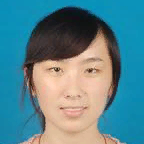International Journal of Image, Graphics and Signal Processing (IJIGSP)
IJIGSP Vol. 3, No. 4, 8 Jun. 2011
Cover page and Table of Contents: PDF (size: 481KB)
A Novel Method to Improve the Visual Quality of X-ray CR Images
Full Text (PDF, 481KB), PP.25-31
Views: 0 Downloads: 0
Author(s)
Index Terms
Wavelet denoising, image enhancement, unsharp masking
Abstract
The aim of this study is to improve the visual quality of x-ray CR images displayed at general displays. Firstly, we investigate a series of wavelet-based denoising methods for removing quantum noise remains in the original images. The denoised image is obtained by using the scheme of wavelet thresholding, where the best suitable wavelet and level are chosen based on theory analysis. Secondly, the image contrast is enhanced using Gamma correction. Thirdly, we improve unsharp masking method for enhancing some useful information and restraining other information selectively. Fourthly, we fuse the denoised image with the enhanced image. Fively, the used display is calibrated, so that it could offer full compliance with the Grayscale Standard Display Function (GSDF) defined in Digital Imaging and Communications in Medicine (DICOM) Part 14. Finally, we decide parameters of the image fusion, resulting in the diagnosis image. A number of experiments are performed over some x-ray CR images by using the proposed method. Experimental results show that this method can effectively reduce the quantum noise while enhancing the subtle details; the visual quality of X-ray CR images is highly improved.
Cite This Paper
Huiqin Jiang,Zhongyong Wang,Ling Ma,Yumin Liu,Ping Li,"A Novel Method to Improve the Visual Quality of X-ray CR Images", IJIGSP, vol.3, no.4, pp.25-31, 2011. DOI: 10.5815/ijigsp.2011.04.04
Reference
[1]Liu Jiquan; Feng Jingyi; Lao Duchun; “DICOM GSDF Based Cal- ibration Method of General LCD Monitor for Medical Softcopy Ima- ge Display”,Bioinformatics and Biomedical Engineering, 2007, ICB- BE 2007, The 1st International conference on Digital object identifier: 10.1109/ICBBE.2007.298, Publication Year:2007, pp.1153-1156.
[2]Iyad Jafar, Hao Ying, “A New Algorithm for Adaptive Contrast Enhancement Based on Human Visual Properties for Medical Imag- ing Applications,” IJCSNS International Journal of Computer Scie- nce and Network Security, VOL.7 No.7, July 2007.
[3]Jiao Feng, Naixue Xiong and Bi Shuoben. “X-ray Image Enha-ncement Based on Wavelet Transform”, Proceedings of IEEE Inte-rnational Conference on Asia-pacific service computing, pp. 1568-1573, 2008.
[4]Miller, M.; Kingsbury, N. “Image denoising using derotated co-mplex wavelet coefficients”, IEEE Transactions on Image Processing, Vol. 17, pp. 1500-1511, 2008.
[5]D.L. Donoho, “De-noising by soft-thresholding,” IEEE Trans. Inform. Theory, vol. 41, No.3,pp.613-627, 1995.
[6]Zhong J, Ning R, and Conover D. Image denoising based on mul- tiscale singularity detection for cone beam CT breast imaging. IEEE Trans MedImaging, 23: 696-703, 2004.
[7]H.Jiang, Y. Lu and L. Ma. “A Novel Image Enhancement Tech-nique for CR Chest Images,”2010 RISP International Workshop on Nonlinear Circuits and Signal Processing, Hawaii, USA, March 3-5, 2010, pp..239-242.
[8]H. Jiang, T. Yahagi, T. Okamoto, and J. Lu,“An Adaptive Deno- ising Method for Medical CR Images Using Wavelet Packet”, Journal of Signal Processing, vol.7, November 2003,no.6, pp. 443-452.
[9]J. Lu, H. Jiang, H. Jiang, and T.Yahagi ,``Restoration of Images with Poisson Noise Based on Wavelet Shrinkage Technique'', 2004 RISP International Workshop on Nonlinear Circuits and Signal Proc- essing(NCSP'04), Hawaii, USA, March 5-7, 2004,pp.391-394.
[10]S. Mallat, A Wavelet Tour of Signal Processing. Academic Press, London, 1998.
[11]G. Chang, B. Yu, M. Vetterli, “Adapting to unknown smooth- ness via wavelet shrinkage,” IEEE Trans. Image. Proc., vol. 9, pp. 1532 -1546, 2000.
[12]Zhong J, Ning R, and Conover D. “Image denoising based on multiscale singularity detection for cone beam CT breast imaging,” IEEE Trans. Med. Imaging, 23: pp.696-703, 2004.
[13]Chun Jiao, Dongming Wang, Hongbing Lu, Zhu Zhang, Jerome Z. Liang,“Multiscale Noise Reduction on Low-Dose CT Sinogram by Stationary Wavelet Transform”, 2008 , IEEE Nuclear Science Symposium Conference Record, pp.5341-5344.
[14]Zachary S. Kelm, Daniel Blezek Ph.D, Brian Bartholmai M.D. “Optimizing Non-local Means for Denoising Low Dose CT”, July 1 2009, pp.662-665.
[15]Nason GP, Silverman BW. The stationary wavelet transform and some statistical applications in wavelet and statistics. In:Antoniadis A ed.Lecture Notes in Statistics. Berlin: Spinger Verlag, 281-299, 1995.
[16]Carrino J., “Image Quality: a clinical perspective”, In: Siegel E, Reiner B. and Carrino J., SCAR University Primer 3: Quality Ass- urance in the Digital Medical Enterprise, Society for Computer A- pplications in Radiology, 2002.
[17]J.Wang and Q.Peng, “An Interactice Method of Assessing the Characteristics of Softcopy Display Using Observer Performance Tests”, J. of Digital Imaging, Vol. 15, Suppl. 1, pp. 216-218, 2002.
[18]E. Samei, A. Badano, D. Chakraborty, et al, AAPM Online Report No.03, “Assessment of Display Performance for Medical Imaging Systems”, 2005.
[19]David M. Jones, “Utilization of DICOM GSDF to Modify Lookup Tables for Images Acquired on Film Digitizers”, J. of Di-gital Imaging, Vol. 19, No. 2, pp. 167-171, 2006.




